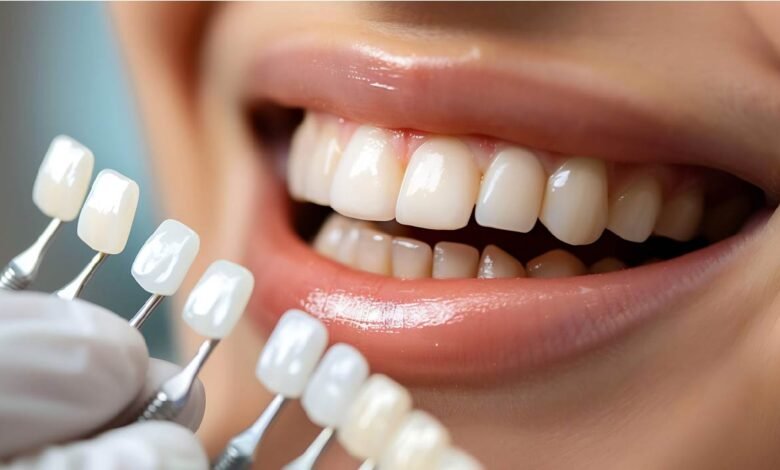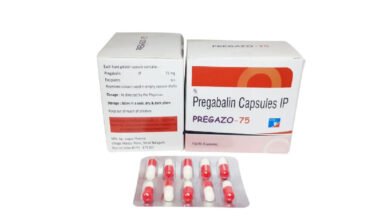7 Post-Veneer Diet Tweaks for Brightness of Porcelain Veneers made in London

Maintaining veneer brilliance requires careful attention to diet and oral care. This article explores seven practical dietary adjustments to preserve the brightness of veneers, tailored for those who have invested in this cosmetic dentistry treatment. With insights grounded in professional dental advice, these tweaks aim to protect your investment while promoting overall oral health. For guidance, Dr. Sahil Patel of MaryleboneSmileClinic shares valuable advice on veneer care. He recommends adopting a mindful approach to diet immediately after porcelain veneers placement to prevent staining and damage. To explore their comprehensive veneer services or book a consultation, visit their website for more details.
Veneers and Their Care Needs
Veneers are thin shells that are glued to the front of teeth to make them look better. They are usually made of porcelain or composite resin. They are often used in cosmetic dentistry, especially at places like those on Harley Street in London, where people look for a cosmetic dentist in London to get great results. Even though veneers last a long time and don’t stain easily, they can still get broken or discoloured. The natural teeth under veneers can still get cavities, and if you don’t take good care of them, the bonding material or the veneer itself can become damaged. Their longevity, which usually lasts between 10 and 20 years with good care, depends a lot on what they eat.
Immediately after veneer placement, the first few days are critical. Temporary veneers, often worn while permanent ones are crafted, are particularly fragile. Even permanent veneers require an adjustment period to ensure the bonding cement sets properly. During this time, dietary habits can influence the veneers’ appearance and structural integrity. Beyond this initial phase, ongoing dietary mindfulness helps maintain their brightness and prevents issues like chipping or staining. The following sections outline seven dietary tweaks to support veneer longevity and oral health.
Prioritise Soft, Non-Acidic Foods Initially
In the first 48 to 72 hours after veneer placement, sticking to soft, non-acidic foods is essential. This precaution protects both temporary and permanent veneers while the bonding material fully sets. Hard or crunchy foods like nuts, raw carrots, or apples can exert excessive pressure, risking cracks or dislodgement. Acidic foods, such as citrus fruits or tomatoes, may weaken the bonding cement or irritate gums, which can be sensitive post-procedure. Opt for foods like mashed potatoes, yogurt, or scrambled eggs, which are gentle on veneers and easy to chew.
Soft fruits like bananas or melons are excellent choices, as they provide essential nutrients without the acidity of oranges or grapefruits. Soups, smoothies, and soft-cooked vegetables are also ideal, offering hydration and nutrition while minimising stress on the veneers. These foods reduce the risk of mechanical damage and help maintain a neutral oral environment, supporting the healing process. After the initial period, you can gradually reintroduce firmer foods, but always chew with caution, especially with front teeth.
Limit Staining Beverages to Preserve Whiteness
Veneers, particularly porcelain ones, are highly resistant to staining compared to natural teeth. However, frequent exposure to deeply pigmented beverages can subtly affect their appearance over time, especially at the edges where the veneer meets the natural tooth. Common culprits include coffee, tea, red wine, and dark sodas. These drinks contain tannins and chromogens, compounds that can adhere to dental surfaces and cause discoloration, particularly if consumed in excess.
To maintain veneer brightness, reduce consumption of these beverages. When indulging, use a straw to minimise contact with the veneers, directing the liquid toward the back of the mouth. Rinsing with water immediately after drinking helps wash away pigments before they settle. For coffee or tea lovers, consider lighter alternatives like green tea or herbal infusions, which have lower staining potential. If staining occurs at the veneer margins, a cosmetic dentist in London can often reline the cement edge to restore aesthetics, but prevention through dietary moderation is the best approach.
Avoid Hard and Sticky Foods to Prevent Damage
Hard and sticky foods pose a significant risk to veneers, as they can cause chipping, cracking, or dislodgement. Items like hard candies, ice, toffee, or sticky caramels should be avoided. These foods exert excessive force on veneers, which, despite their durability, are not as resilient as natural teeth in withstanding extreme pressure. Biting into tough foods like raw vegetables or crusty bread with front teeth can also stress the bonding material, potentially loosening the veneer.
Instead, choose softer alternatives that require less biting force. For example, steam vegetables to soften them or cut fruits like apples into smaller pieces to chew with back teeth. Whole-grain bread, oats, and lean proteins like chicken or fish are veneer-friendly options that support oral health without risking damage. If you grind your teeth or have habits like nail-biting, consult a cosmetic dentist in London for a custom nightguard to protect your veneers during sleep or high-stress moments.
Incorporate Calcium-Rich Foods for Underlying Tooth Health
While veneers cover the front of teeth, the natural tooth structure beneath remains vulnerable to decay and sensitivity. A diet rich in calcium and phosphates strengthens the underlying teeth and supports gum health, which is crucial for veneer longevity. Dairy products like milk, cheese, and yogurt are excellent sources of these nutrients, promoting enamel remineralisation and reducing the risk of decay beneath the veneer.
Non-dairy options, such as fortified almond milk, leafy greens, or tofu, are suitable for those with dietary restrictions. These foods help maintain a balanced oral pH, counteracting acidity from other foods or drinks. Strong natural teeth provide a stable foundation for veneers, reducing the likelihood of complications like loosening or gum recession. Regular consumption of calcium-rich foods also supports overall oral health, complementing the aesthetic benefits of veneers.
Hydrate to Maintain a Clean Oral Environment
Drinking plenty of water is a simple yet effective way to keep veneers bright and your mouth healthy. Water rinses away food particles, bacteria, and residual pigments from staining beverages, preventing build-up on veneer surfaces. It also neutralises oral acidity, protecting both the veneers and the underlying teeth from erosion. Hydrating foods like cucumbers, watermelon, or celery further contribute to saliva production, which naturally cleanses the mouth and reduces the risk of plaque accumulation.
Aim to drink water throughout the day, especially after meals or staining beverages. Swishing water around the mouth after eating can dislodge debris before it adheres to veneers or gums. This habit is particularly important for those with veneers, as maintaining a clean oral environment prevents bacterial growth that could compromise the natural teeth or bonding material. Water also supports overall hydration, benefiting gum health and reducing the risk of dryness-related oral issues.
Moderate Acidic Foods to Protect Bonding and Enamel
Acidic foods and beverages, such as citrus fruits, sodas, or vinegar-based dressings, can erode the bonding material that secures veneers and weaken the enamel of surrounding natural teeth. While porcelain veneers are resistant to acid damage, composite veneers and the underlying tooth structure are more vulnerable. Over time, frequent acid exposure can loosen veneers or cause sensitivity, detracting from their appearance and functionality.
To mitigate this, limit acidic foods and consume them as part of a balanced meal to dilute their impact. For example, pair citrus fruits with neutral foods like yogurt to buffer acidity. Rinse your mouth with water or use a fluoride mouthwash after consuming acidic items to restore a neutral pH. Avoid brushing immediately after acidic foods, as this can further wear down softened enamel. By moderating acid intake, you protect both your veneers and the health of your natural teeth.
Adopt a Balanced Diet for Long-Term Oral Health
A balanced diet not only supports veneer maintenance but also enhances overall oral health, ensuring your smile remains radiant. Incorporate a variety of nutrient-dense foods, such as whole grains, lean proteins, and crunchy vegetables like carrots or celery, which naturally clean teeth when chewed. These foods provide essential vitamins and minerals that strengthen teeth and gums, reducing the risk of issues like gum disease or decay that could affect veneer stability.
Avoid excessive sugar, as it fuels bacterial growth that can lead to plaque build-up and cavities in natural teeth. If you consume sugary foods, brush or rinse soon after to minimise harm. Regular dental check-ups with a cosmetic dentist in London, such as those at MaryleboneSmileClinic, ensure that any early signs of decay or veneer issues are addressed promptly. A balanced diet, combined with consistent oral hygiene, maximises the lifespan of your veneers and keeps your smile bright.
Additional Tips for Veneer Maintenance
Beyond dietary adjustments, maintaining veneer brightness requires diligent oral hygiene. Brush twice daily with a soft-bristled toothbrush and non-abrasive fluoride toothpaste to avoid scratching the veneer surface. Floss daily to remove plaque and debris from between teeth, where bacteria can accumulate and affect the natural teeth or bonding material. Avoid whitening toothpastes, as they can be too abrasive for veneers and may dull their shine over time.
Regular dental visits are crucial for professional cleanings and veneer inspections. A cosmetic dentist in London can polish veneers to restore their lustre and check for signs of wear or loosening. If you smoke, consider quitting, as tobacco can stain both veneers and natural teeth, creating an uneven appearance. For those who grind their teeth, a custom-fitted nightguard protects veneers from undue stress. These habits, combined with the dietary tweaks outlined, ensure your veneers remain a stunning feature of your smile.
The Importance of Professional Guidance
Consulting a skilled cosmetic dentist is essential for personalised veneer care advice. Practices like MaryleboneSmileClinic, located in London’s prestigious Harley Street, offer tailored recommendations to suit individual needs. Their expertise ensures that dietary and hygiene practices align with the specific type of veneers—porcelain or composite—and your oral health profile. Regular check-ups allow dentists to monitor veneer condition, address any sensitivity, and provide professional cleanings that enhance brightness.
By integrating these seven dietary tweaks—prioritising soft foods, limiting staining beverages, avoiding hard and sticky items, incorporating calcium-rich foods, staying hydrated, moderating acidic intake, and adopting a balanced diet—you can preserve the brilliance of your veneers for years. These adjustments, paired with consistent oral hygiene and professional care, safeguard your investment and maintain a confident, radiant smile. For those in London seeking expert veneer treatment, consulting a reputable cosmetic dentist ensures long-lasting results and a smile that shines.


